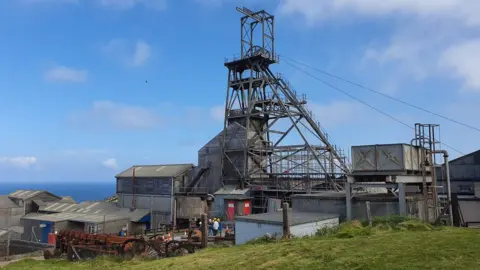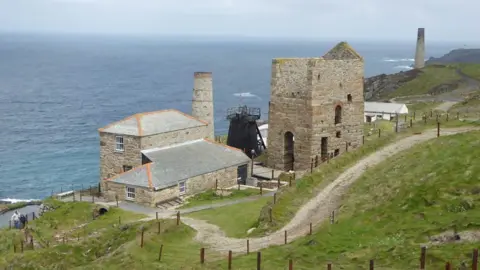Disused Cornish mines could heat county's homes
 Geevor Tin Mine
Geevor Tin MineA £100,000 study will examine if abandoned Cornish mines can provide renewable and low-cost heating.
The scheme will explore whether water in flooded mines can be used with heat pump technology to warm homes.
If successful, the county's 400 abandoned mines could improve options for off-gas grid communities - which account for half the county's homes.
It could also play a role in meeting Cornwall Council's ambitions to make Cornwall carbon neutral by 2030.
Stephen Rushworth, cabinet member for Economy at Cornwall Council, said half of the homes in Cornwall do not have access to mains gas and many are "not suitable for air source heat pumps without expensive energy efficiency measures".
He added: "This feasibility study could greatly improve options for our residents and further develop Cornwall's geothermal industry."
The Department for Business, Energy and Industrial Strategy awarded £67,000 to Cornwall Council, housing association LiveWest and the National Trust to carry out a feasibility study.
Each organisation has pledged an additional £11,000 to the project, which is being carried out at Geevor, Levant and Botallack mines near Pendeen.

Cornwall Council said water within the mines was warmed by natural processes due to the granite bedrock and was unaffected by seasonal variations.
The initial study will take place at Geevor Tin Mine and examine whether the water could heat LiveWest's housing stock in the adjacent Boscaswell Estate, and at Geevor Tin Mine and Levant Mine.
Tim Wotton, green funding manager for LiveWest, said this was an "innovative project which could result in more sustainable energy in our homes".
Ian Marsh, National Trust general manager for West Cornwall, said: "The fact that they were once kept dry by steam engines, symbols of the Industrial Revolution, and could now generate carbon free heat for both National Trust places and the communities that surround them, is fascinating."

Follow BBC News South West on Twitter, Facebook and Instagram. Send your story ideas to [email protected].
